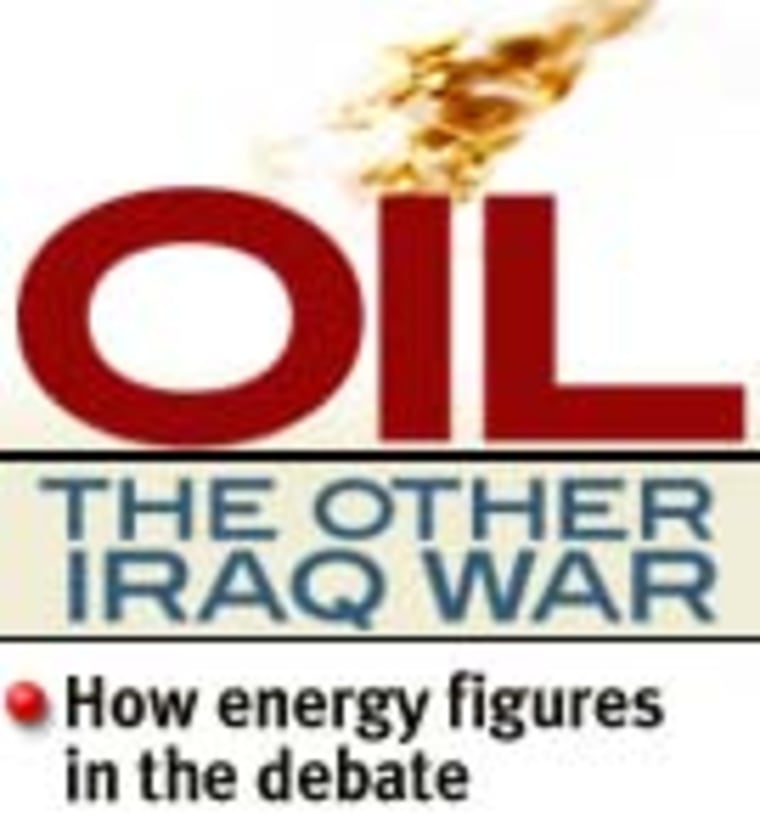As the United States pursues Saddam Hussein’s downfall, new light has been shed on the roles of his two sons, who have established a division of labor between themselves in Iraq. According to U.S. intelligence sources, both Uday and Qasay have been amply rewarded in terms of money and power, but Qasay, the youngest son, is the man being groomed to succeed his father.
THEY ARE FULL brothers, graduates of the University of Baghdad with little or no experience in the West, but with some fluency in English.
According to U.S. intelligence and human rights groups, Uday is impulsive, bizarre and violent. Qasay, while still brutal, has a low profile and is expected to be Saddam’s successor.
Uday, 36, has flourished amid Iraq’s nightmare of war, sanctions and starvation by taking charge of the black market, according to U.S. intelligence officials.
It is Uday who arranges sales of Iraqi oil as well as purchases of meat and other foods. Among his newest money-making schemes are leasing soccer players to European and Asian teams — Iraqis are well-known in this sport — and selling licenses for bird hunting in the marshes of southern Iraq.
The Iraqi National Congress, the London-based dissident group, says Uday profits from the U.N. sanctions imposed following the Persian Gulf war, since he controls a number of Iraqi companies designated to deal with the United Nations on food and other humanitarian efforts. The dissident group says he made a profit of $10 million alone on one deal for kerosene in 1992.
VIOLENT INCIDENTS
According to U.S. intelligence officials and Iraqi dissidents, Uday has used his position as head of Iraqi TV and Babel, the country’s biggest newspaper, to sell advertising that local businessmen are “encouraged” to buy if they want to remain in business.
One of the more interesting editorials in Babel, say officials, was one in April 2000 in which Uday criticized Iraqi security organs — run by his brother — for arresting cigarette smugglers. The belief in Baghdad and Washington, D.C., is that the smugglers worked for him.
Uday is also the head of Fedayeen, the paramilitary group to which more than one-third of all government workers now belong. According to U.S. officials, the organization is another lucrative source of corruption, particularly through job selling.
UDAY’S SCRAPES

A fancier of titles, Uday is a member of the Iraqi National Assembly, and president of the Iraqi Journalists Union, the Iraqi Union of Students and the Iraqi Olympic Committee.
But his violent nature has led to several scrapes with death — and with his father. The most recent came in late 1996, when he was shot up in a gunfight in Baghdad’s exclusive Mansour district.
The gunmen, part of a rival clan, were never caught. Initially paralyzed by the attack, Uday has apparently recovered well enough to walk unattended. Still, in a 1997 letter to his father, Uday described himself as “lame.”
U.S. officials also have information, not all of it confirmed, that has linked Uday to other acts of violence. Among them:
The murder of an aide to his father, in some reports described as his father’s food taster. Uday reportedly beat the man to death, claiming the man dishonored his mother by introducing Saddam to a woman who became his mistress.
The murder of a motorist in Baghdad. While stuck in traffic, Uday became enraged with a driver who apparently did not move quickly enough to get out of his way and sprayed the person with automatic-weapons fire.
Uday led the assault on the home of his brother-in-law, Hussein Kamel in February 1996, killing Kamel, his brother and others, including Kamel’s 1-year-old child — his own nephew and Saddam’s grandchild. Kamel had defected to Jordan in 1995 with his brother and their wives, both daughters of Saddam and Uday’s sisters. While in Jordan, they provided a wealth of intelligence on the regime and its weapons programs. Then, inexplicably, they returned.
According to a British Foreign Office dossier released Monday, Uday has maintained a private torture chamber, known as the “red room” and disguised as an electricity installation, in a building on the banks of the Tigris.
In one infamous incident, Uday ordered the national football team to be caned on the soles of their feet after losing a World Cup qualifying match, the British report said.
THE PROBLEM CHILD
InsertArt(1964349)The Central Intelligence Agency believes that Saddam sees Uday as his problem child. Agency reports say that a few years ago, Saddam, angered at one of Uday’s outbursts, gathered all of his eldest son’s dozen or so luxury cars and had them torched in front of Uday.
“The Iraqi equivalent of Dad taking son’s car keys away,” quipped one official.
Uday is despised by the common people of Iraq, who resent his violent and bizarre behavior, and the fact that neither brother served in the Iran-Iraq War or the Gulf War.
Uday believes that as the eldest son, he deserves to be Saddam’s heir apparent. But one U.S. official said “that isn’t going to happen.”
Still, officials said, his black-market operations bring the family more than $100 million a month in illicit income outside the controls of the U.N. sanctions committee. It is that money that is used to pay off loyalists, build palaces and provide security for the Iraqi president and his family.
QASAY: HEIR APPARENT

But for all the attention Uday receives in the Western press, senior U.S. intelligence officials say he is second in importance to his brother, who is as ruthless as his father, just not so public about it.
“Let me put it this way,” said one high-ranking senior U.S. official. “Uday is the president of the Iraqi Olympic Committee. Qasay is the head of the Special Security Organization, which is in charge of Saddam’s personal security and hiding the weapons of mass destruction. You tell me who is more important!”
At 34, Qasay is increasingly seen as the second most powerful man in Iraq after his father.
He is a member of the nation’s highest body, the Revolutionary Command Council; commander of the Special Security Organization and the Republican Guard; and deputy commander of the Baath Party’s Military Bureau.
And although he never served in the military, Qasay, unlike Uday, has had some military training.
Qasay’s key role, though, is head of the Special Security Organization, which controls all security and intelligence operations of the regime, monitoring the myriad organizations assigned to both domestic and overseas spying. It is also the innermost of the concentric rings of security around Saddam.
A MATTER OF TRUST
The organization’s offices are just up the street from Baghdad’s Republican Palace and the Baghdad presidential bunker, giving him instant access to his father’s offices.
Saddam has placed increasing power in Qasay’s hands, and U.S. officials believe there is no doubt Saddam is preparing Qasay to succeed him.
Qasay is seen as more loyal and more mature — but no less brutal — than his brother. He has always been Saddam’s favorite child, in part because Saddam apparently can trust him more than Uday.
Qasay has played a key role in concealing Iraq’s weapons of mass destruction, being the man in charge of what U.N. inspectors previously called the Iraqi concealment mechanism. One of the issues that led to the end of inspections and subsequent United States bombing in 1998 was Iraq’s refusal to let the United Nations into offices of the Special Security Organization.
“He handles the sticky problems for Saddam,” one official said of Qasay. “Dealing with dissidents, dealing with concealing weapons of mass destruction, protecting Iraqi officials.”
Robert Windrem is an investigative producer for NBC News, based in New York.